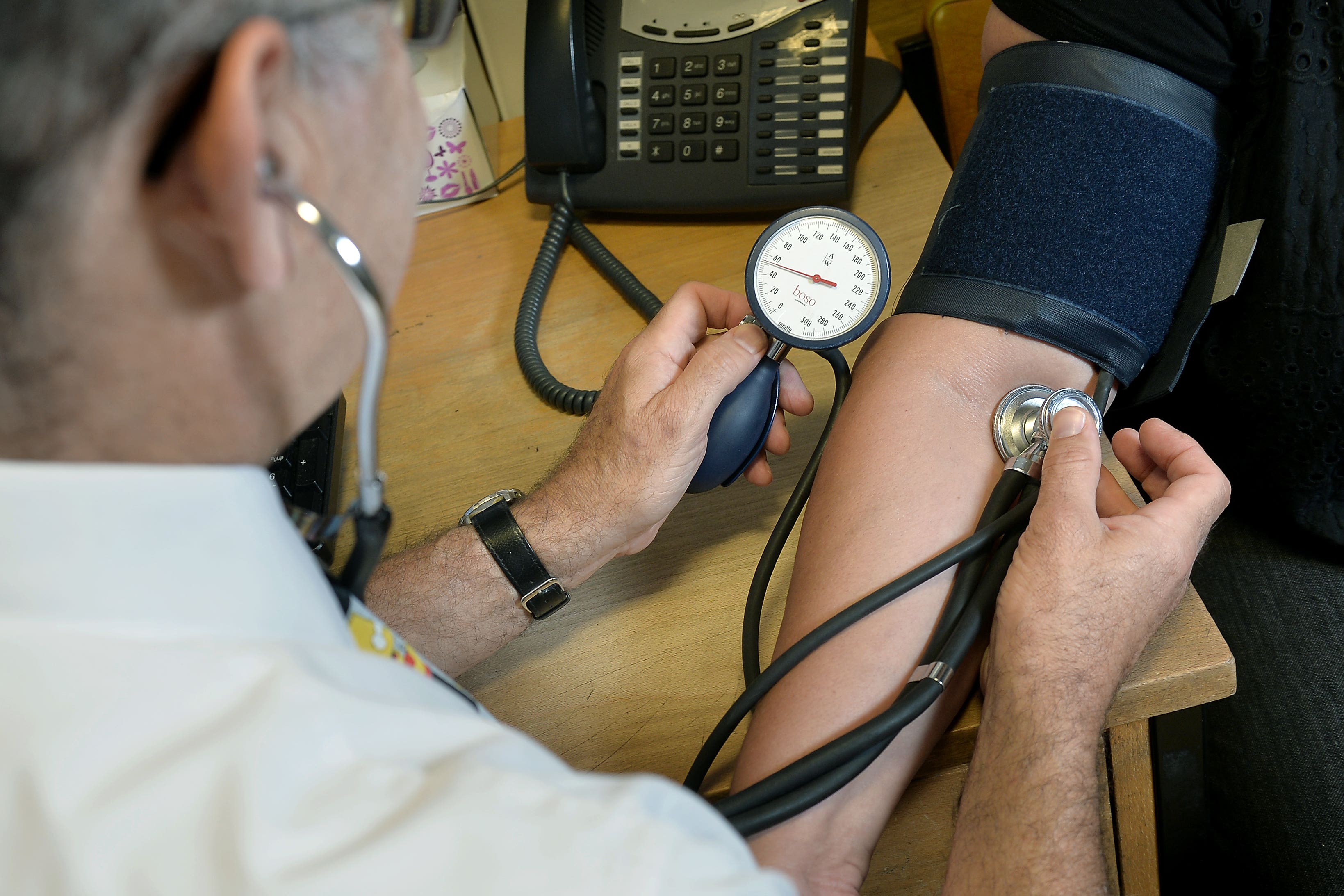Blood pressure variations ‘could be warning sign of heart attack or stroke’
Researchers called for ‘new practical ways’ to measure blood pressure variability in patients.

Significant variations in blood pressure could be an indication that a person is at risk of a heart attack or stroke, a study has suggested.
Researchers warned there is an urgent need for “new practical ways” to assess variability and are exploring the use of technology for patients to track their blood pressure over time.
They found variations in systolic pressure – the higher of the two numbers used to measure blood pressure and the force at which your heart pumps blood around your body – was a “strong predictor” of heart attacks, strokes or atrial fibrillation, a condition which causes an irregular and fast heartbeat.
Academics from Imperial College London used data from the ASCOT study, which was designed to help scientists better understand high blood pressure and involved almost 20,000 people over a period of five to 21 years.
Their analysis, published in the European Heart Journal, was based on 8,580 British patients involved in the ASCOT Legacy Study, which followed up until 2019.
Our latest findings highlight the importance of tracking variability in blood pressure over time
The cohort was split into three, based on average systolic blood pressure and blood pressure variability.
Among the group with an average systolic blood pressure of less than 140 mmHg, those with the greatest variability were 16% more likely to have a heart attack or stroke.
The team also found 53% of all cardiovascular events happened to patients whose blood pressure was considered to be well controlled with medication.
Senior author Professor Peter Sever, of the National Heart and Lung Institute at Imperial College London, said: “We’ve long known that high blood pressure increases the risk of heart attacks and stroke, but our latest findings highlight the importance of tracking variability in blood pressure over time as well.
“While a degree of this was known to doctors, without clinical trials it has been difficult to quantify the risk of blood pressure variability over the long term, or the impact of interventions such as calcium blockers to reduce patients’ risk.”
High blood pressure, or hypertension, puts additional strain on the heart, blood vessels and other organs.
It can increase the risk of heart attacks and stroke, as well as the likes of heart and kidney failure, and vascular dementia.
The low cost and wide availability of digital blood pressure monitors and health apps means people can readily track their blood pressure over time and this could provide invaluable data for doctors
According to the Office for National Statistics (ONS), about 32% of adults in England have high blood pressure, with an estimated three in 10, or 4.2 million people, undiagnosed.
Prof Sever, who also leads the ASCOT Legacy trial, said there is an urgent need “to explore new practical ways to assess blood pressure variability” and his team is “currently studying the possibilities of incorporating data from home blood pressure monitoring into clinical decision-making”.
He added: “The low cost and wide availability of digital blood pressure monitors and health apps means people can readily track their blood pressure over time and this could provide invaluable data for doctors to make the best treatment decisions – though we’d urge patients not to be overly concerned, as we would expect a degree of variation in their readings over time.
“Crucially, we need international guidelines for clinicians to be updated to reflect these latest findings and to include blood pressure variability as a major risk factor for heart attack and stroke.”
Prof Sever added that the “optimum method” of assessing blood pressure variability over time is still unknown and “more research is needed”.
He said that while trials are needed to confirm drugs that lower variability, his team’s “best evidence” is that patients with high variability should consider “a treatment regimen that includes a long-acting calcium channel blocker such as amlodipine”.
Commenting on the study, Bryan Williams, chief scientific and medical officer at the British Heart Foundation, said: “These findings once again shed light on the predictive significance of blood pressure variability for the risk of heart attack and stroke.
“The study suggests that monitoring blood pressure variability could be a vital addition to routine health checks, helping to spot patients who remain at risk despite appearing to have well-controlled blood pressure.
“The challenge identified by this study for the future, is how to reduce blood pressure variability and smooth the blood pressure profile, beyond the lowering of blood pressure itself which we know is protective against heart attack and stroke.
“An estimated 30% of adults in the UK have high blood pressure, which is around 16 million adults.
“Getting your blood pressure checked and treated if its elevated is one of the most important things you can do to prevent heart attack and stroke and help save lives.”
Bookmark popover
Removed from bookmarks